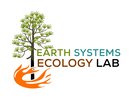|
Imagine a career where a high success rate means you fail more than 50% of the time and you can never prove you are correct. That is being a scientist.
I live in a world where the majority of my friends are also scientists and I often forget that most people have relatively limited formal exposure to science. Sure, you take biology and chemistry in high school and if you’re not a science major in college, you take a few science classes. What gets lost in this level of education is how messy the scientific process is and how often you fail to accomplish your objective. What also gets lost is how the excitement of unexpected results is really what drives most of us. We teach science as a linear process in introductory science classes – researcher develops hypothesis, designs experiment to test hypothesis, experiment supports hypothesis, new knowledge acquired and added to text book. But, that isn’t how it really works. A more accurate representation of this bland description is that – researcher develops hypothesis, designs experiment to test hypothesis, experiment fails for any number of reasons, researcher develops new experiment to test hypothesis, experiment inconclusive, new knowledge acquired, researcher reevaluates hypothesis and starts over. Of course, that doesn’t do the process justice. In my experience as a forest ecologist it usually goes something like this:
If you’re not a scientist (which I hope) and reading this (the whole reason I write this blog), you’re probably thinking – This poor science geek can only make friends with other scientists. and It must be pretty demoralizing to fail most of the time. I certainly can’t speak for everyone in science, but I’m pretty obsessive when it comes to thinking about forests and most of my friends are pretty obsessive about thinking about their study systems too. It’s not a curse; nature is a fascinatingly complex puzzle. I absolutely love forests and I strive to do meaningful work that helps us understand and better manage our forests. As for the failure part, sure sometimes it’s disheartening. But the unexpected is what motivates me. When I get unexpected results and it challenges me to think about the forest in a new way, that is what wakes me up in the middle of the night. That is what allows me to let the grant proposal and paper rejections roll off my back. When I teach introductory ecology, I try and communicate to students that this process is not linear like their textbook would have them believe. The information that makes it into a book has lots of failure and reevaluation behind it. The individuals that discovered those things in their textbook were driven by curiosity and the desire to more completely understand whatever system they were working in. While this career certainly doesn’t appeal to most, I just hope that people who aren’t scientists can appreciate the process the way I appreciate the process an artist or business person or engineer goes through.
0 Comments
Your comment will be posted after it is approved.
Leave a Reply. |
Details
Archives
October 2023
Categories
All
|

 RSS Feed
RSS Feed